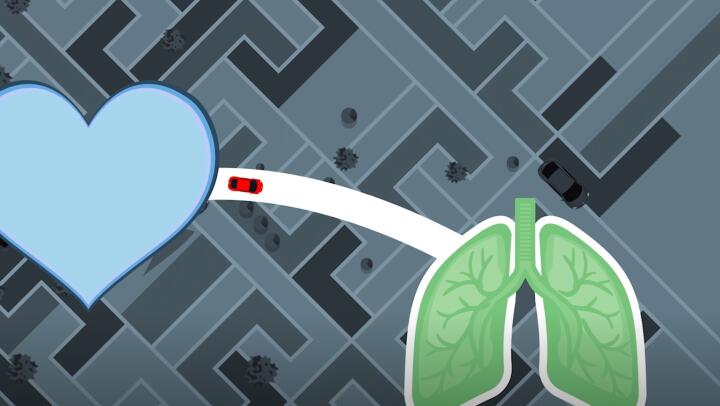
The adult heart typically beats about 60-100 times a minute when you are calm, relaxed and not exercising. Your heart beats, or pulses, when it squeezes tightly to move blood in and out of the heart. Any change in the normal beating pattern (called your heart rhythm) may lead to serious health problems.
The most common type of irregular heart rhythm is atrial fibrillation (AF, or afib). It's called "atrial" fibrillation because it starts in the upper chambers of the heart, called the atria.
Both men and women can get afib. But your symptoms, diagnosis, treatment and outcome may differ, depending on your gender. A 2013 study noted significant differences among men and women with afib. Reasons for this might include:
- A misbelief that heart disease affects only white, middle-aged men
- Biological differences scientists are still investigating
Following are some important things you need to know about gender differences in AF.
Who Gets Afib?
Before age 75 atrial fibrillation is more common in men. However, after age 75, most people newly diagnosed with afib are women. Doctors say this is likely because women simply live longer than men. And men with afib are usually diagnosed at a younger age than women. Things that increase everyone's risk for afib are:
- Aging
- Diabetes
- High blood pressure (hypertension)
The root cause of afib appears to differ between men and women.
- In women, it is usually due to a problem with the heart valves.
- In men, it is usually a result of coronary artery disease (CAD).
Different Symptoms
People with afib have fast, fluttering heart beats, called palpitations. Some describe it as a flip-flopping feeling or "butterflies" in the chest. Women are more likely than men to feel such symptoms. Doctors think this is because women have a faster heartbeat in general. Also, a woman's body frame is typically smaller than a man's, so it may be easier to feel the heart speed up and quiver.
Afib symptoms more common in women than men are:
Different Co-existing Conditions
Men with afib are more likely to have coronary artery disease (CAD) or a lung disease called chronic obstructive pulmonary disease (COPD).
Women who seek hospital care for afib symptoms are significantly more likely to have a thyroid problem (that is not causing the irregular heartbeats). Other conditions that have been seen more often in women than men with afib are:
- Depression
- High blood pressure (hypertension)
- Kidney problems
- Obesity (body mass index greater or equal to 30)
Complication Differences
Afib increases your risk of having a stroke. The abnormal heart rhythm makes it hard for the upper chambers of the heart to push out blood. Blood can pool inside the heart and form a clot that can break off, enter the circulation, and block blood flow.
Women with afib are more likely than men to have a stroke or early death. They also have higher rates of heart attack and congestive heart failure. In general, men with afib usually have a better outcome than women.
Treatment Differences
Anticoagulants, such as warfarin or aspirin, are drugs used to thin the blood. They are given to afib patients to help prevent blood clots from forming in the heart. Studies show clot-preventing medicines are prescribed more often to men with afib than women. (However, women with afib who take anticoagulants have a greater risk of dangerous bleeding episodes.)
Other treatment differences in men and women with afib:
- Men are more likely to be referred for non-drug therapies, including pacemakers and catheter ablation. (Ablation therapy threads a wire from a leg vein to the heart to change the heart area that's causing the abnormal beats.)
- Twice as many women as men with afib get medicines called diuretics, which remove extra fluid from the body. Fluid can build up in the body when the heart doesn't pump correctly. Diuretics do not reverse afib.
- Women are much more likely to have a life-threatening complication called torsade de pointes (TDP) when taking potassium channel blockers, such as dofetilide. These medicines are sometimes used to help control the heart rhythm in patients with afib.
- Women with afib are much more likely to be prescribed an antidepressant than men. Women are more likely than men to have afib return after successful cardioversion. Cardioversion uses mild electric shock or medications to disrupt the abnormal heart beat and return it to normal.
Whether you are a man or woman, it's important to remember heart disease can strike anyone. Always tell your doctor about any symptoms you may have – whether you are just more tired than usual or seem out of breath when doing everyday tasks. Ask your doctor to tell you about all the tests or treatments available for your condition. Call 911 or seek emergency medical help if you have numbness in an arm or leg, face drooping, trouble speaking, chest pain, or other symptoms of a heart attack. For more information visit this




















